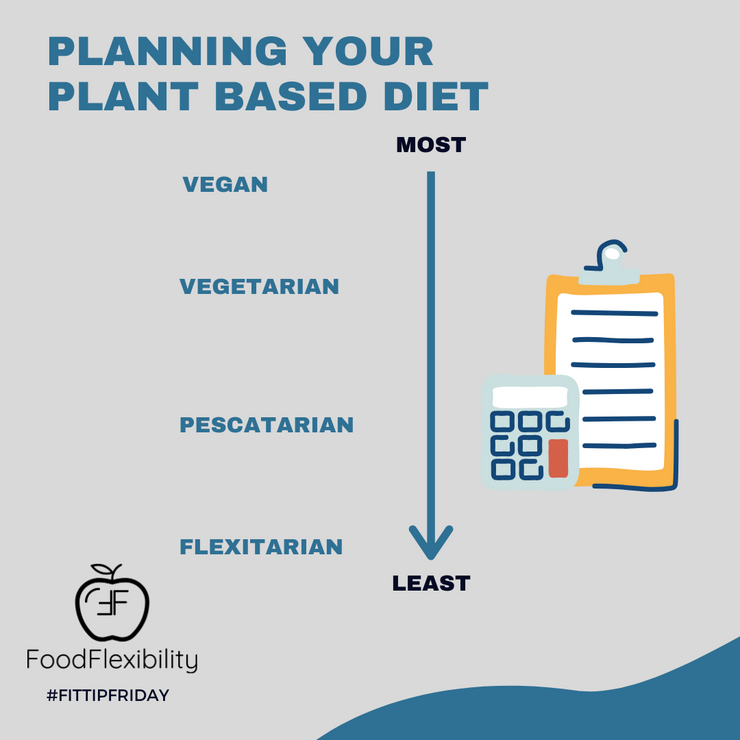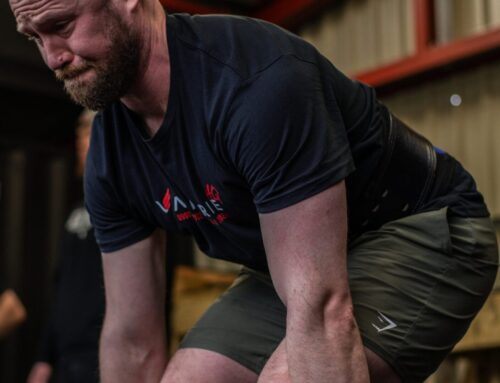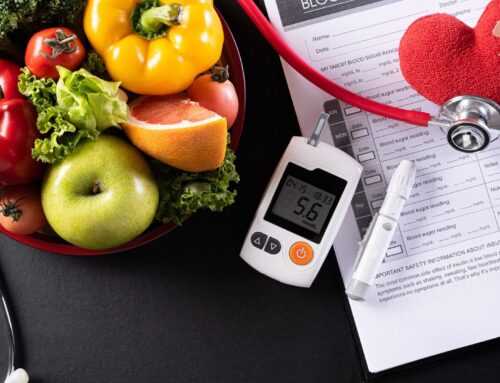Are there any special considerations when following a plant based diet?

You may have chosen to follow a vegan or vegetarian diet because you are ethically opposed to eating animal products. That’s an awesome reason, but how can you make that diet as healthy as possible?
A vegan, vegetarian or omnivorous diet can easily cover all of your nutritional bases.
Diets which do not feature any animal products just need a little more planning and I’m going to give you some really simple guidance on the easiest way to do that.
To kick things off I just want to make a few definitions:
-
Vegan diet: Does not eat any animal products
-
Vegetarian diet: Does not eat meat, poultry and fish, but may eat eggs, honey, dairy etc.
-
Pescatarian diet: Same as the vegetarian diet but also eats fish
-
Flexitarian diet: Same as the vegetarian diet but occasionally eats small amounts of meat

The number of animal products consumed increase as you move down the list.
The more a particular food group is excluded from your diet, the more chance there is of a nutrient deficiency occurring. A number of the nutrients that your body needs for optimal health are either not present in plant-based foods or are difficult to absorb.
As such a vegan diet needs a little more planning than a flexitarian diet if you want to ensure you are getting everything you need.
For diets which exclude or limit animal-based foods, the following are the most important to pay attention to:
-
Iron
-
Calcium
-
Zinc
-
Vitamin B12
-
Omega 3
-
Protein
-
Calories
-
Fats
Now, there’s a lot of detail in this article so if you just want to get a quick sense check wether you’re hitting the recommended amounts of each nutrient from the foods you regularly eat then I suggest you simply input 3-4 days of your typical meals into an app called Chronometer.
Once you have that data you can spot if your regular diet leaves you low in any vitamins and minerals and then chose to eat some more foods that contain those things or add a supplement to cover your bases.
Read on to understand why and how to ensure you get enough of what you need without eating animal products.
Iron
Iron is important for healthy red blood cells and is the most common mineral deficiency resulting in anaemia.
Plant-based eaters are therefore not much more likely to be deficient than omnivores. But animal products do provide the body with the highest quantity of iron in the most easily absorbed form.
Plant-based sources of iron include beans, nuts, whole grains and dark leafy green vegetables (like spinach).
These foods provide lower quantities of iron that are more difficult for the body to absorb.
So, whilst you may be eating a lot of foods that seem to contain plenty of iron that does not mean you are getting (or absorbing) enough of it.
You can give your body a helping hand with absorbing plant-based iron by cooking things like leafy greens. If you like to have these in a smoothie then perhaps consider blanching them in the microwave first.
Vitamin C also helps your body absorb iron so you could consider eating some fruit alongside your iron sources (by blending in some lime juice to the smoothie in the example above)
If you are worried about your overall iron levels then speak to your G.P, they can do a simple blood test to confirm your levels and also rule out any underlying issues. They won’t mind and I’m sure they would rather you ask early on than leave things to potentially get worse over time.
Calcium
You no doubt already know that calcium is pretty important for your bones. It also helps with blood clotting and regulating muscle contractions.
Lack of calcium can lead to lower bone density and increased risk of osteoporosis.
As dairy foods are the best source of calcium, those who exclude dairy need to pay closer attention to their calcium intake.
Plant-based sources of calcium include leafy greens and tofu. Again, don’t assume these will give you sufficient calcium as, just like iron, it is present in lower amounts and harder for your body to absorb.
For example, spinach contains around 99mg of calcium per 100g. Using those numbers as a rough estimate, you’d need to eat something like1Kg of spinach to reach your daily calcium goal!
Plant-based milk, fortified with calcium, can be a great help to those who don’t consume dairy. Make sure that you check the labels though! The recommended daily intake of calcium is 1000mg so consider a supplement if you are not reaching this level regularly but be sure not to exceed 2500mg of calcium per day.
Zinc
Zinc helps with the reproduction of your cells, your immune system, the healing of wounds and in processing the energy within the foods you eat.
Seafood, lean meat, poultry and eggs are all great sources of zinc so if these are not present in your regular diet then you may need to consider things more carefully.
Plant-based sources of zinc include legumes, soy, bread and cereals. These are however not as easily absorbed by your body as animal-based sources.
Plant-based sources of zinc which are high in protein (like legumes and nuts) are better absorbed by your body, as are fermented foods like tempeh and miso.
If you don’t eat many of these foods then perhaps consider a supplement. 15mg per day is recommended but be sure not to exceed 40mg per day.
B12
Vitamin B12 also helps with the reproduction of your cells and is essential for producing healthy red blood cells. Deficiency can lead to degradation of the spinal cord as well as anaemia.
To further complicate things, deficiency in B12 can be masked by a high a folate intake, taking up to 2 years to detect, at which point it may be too late.
This is a very important reminder of why you should be careful with high vitamin doses and unbalanced diets!
B12 is naturally found in meat, poultry, eggs and dairy. But, except for Marmite and Sauerkraut, plant-based foods do not naturally provide B12.
Luckily breakfast cereals, milk substitutes and even energy drinks are often fortified with B12. As always, check the labels to see if they have been fortified and in what amount (for example organic plant milk is often unfortified).
As with calcium, you would need a lot of fortified plant-based milk to reach a sufficient level of B12.
So, no matter how many fortified foods a vegan may eat, the simplest thing for them to do is take a B12 supplement.
Note: Overconsumption of B12 is harmless as your body processes and removes it very quickly.
The World Health Organisation currently recommend 2.4ug per day for men and women.
Omega-3
Omega-3 fats are important for immune function as well as brain health.
The easiest forms of omega-3 for your body to utilise are EPA and DHA, which are typically found in oily fish such as mackerel, sardines or salmon.
It is possible to get omega-3 from plant sources like walnuts, chia seeds and walnuts but these foods provide it in the form of ALA which your body then needs to convert into EPA and DHA and this process is a little less efficient.
If you don’t eat omega-3 containing foods such as oily fish, nuts and seeds then you might want to consider a supplement. Check the labels for 250mg of EPA and DHA (combined).
Vegans should look for an algae-based supplement because these provide EPA and DHA rather than ALA.
Protein
Protein is really important for everybody, not just for active individuals. This is because it contains amino acids which are used within the body to perform all sorts of important functions like the growth and repair of muscle, bone and skin as well as to produce hormones.
Protein also provides a greater feeling of fullness which has obvious benefits to those who may be dieting.
No doubt you know that meat is a great source of protein and you’re probably fed up of your gran asking you ‘where do you get your protein from dear?’.
If you’ve already checked things out then you’ve probably realised that lots of plant based foods provide protein but you possibly have to look a bit harder as those plant based protein sources are not as obvious and also contain carbohydrates and fats.
Sportsmen should aim for 1.6-2.2g of protein per kilogram of their ideal bodyweight).
So if your ‘fighting weight’ is 75kg then you need 120 to 170g of protein each day, depending on your goal.
Have a look at some food labels or use an online nutritional database and see how close you are to that number.
A protein shake can be a good option for those with a high requirement (rugby players, strength athletes etc.) I eat anything and I’d personally struggle to hit 170g of protein per day without a shake or two, plus its a LOT cheaper than steak!
If you don’t eat meat, poultry, fish, eggs or dairy then you may need to do a little more planning because plant protein does have some limitations:
-
Plant-based sources have less protein per mouthful, so it can help to be aware of this to ensure sufficiency
-
Animal proteins have a ‘complete’ amino acid profile whereas plant sources do not. Therefore, it can be a good idea to pick different plant protein sources across a day to ensure the necessary variety
-
As plant protein is absorbed at a lower rate, it can be a good idea to aim for 1.6-2.2g of protein per kg of body weight, consuming a higher amount if you are more active or interested in building muscle
Simple tips for combining plant proteins:
-
Combine nuts and seeds with legumes: For example, lentil and nut curry, hummus (chickpeas and sesame seed paste) or almonds and peanuts (peanuts are actually a legume)
-
Legumes and grains: For example, the classic beans on toast, black beans and rice, peanut butter on toast, bean soup with bread or pasta with peas
Calories
There are a ton of benefits to eating a predominately plant based diet.
Whole, single ingredient foods are filling and low in calories. Good for a diet but not if you consistently miss your daily calorie requirements.
Low calories impact performance and recovery and can also lead to you feeling the need to ‘top’ up on more calorie dene foods like chocolate and crisps etc. which could lead to weight gain if you don’t understand the overall impact.
People who are very active and regularly under eat are susceptible to Relative Energy Deficit Syndrome (REDS).
So sportsmen and serious gym-goers like us need to make sure we are adequately fuelling ourselves to avoid any of the follwoing issues.
-
constantly focussing on food
-
getting ill more often
-
poor mood
-
an inability to improve athletic performance
-
loss of libido
You can learn more about REDS here.
Now you know how to set up your plant-based diet to properly supports your health and exercise performance and what supplements you might want to take.
Did you find this article useful or know somebody it may help? Why no give it a share on social media using the links below.
Fats
With the current focus on planetary health and more plant-based eating, the nutrition space has focussed a lot on where the plant-based sources of protein is coming from but there hasn’t been a lot of focus on fat.
Fat got demonised a lot in the 80s and I think there is still a hangover from that period of time leading us to assume that we need to reduce fat as much as possible.
Simply put, that’s not true. In fact, the world health organisation recommends that at least 20-30% of your calories come from fat.
Fat is one of the three macronutrients (the other two are protein and carbohydrates) your body needs to be healthy! And that means it’s one of the three main ways the body obtains energy and calories.
Fat plays a vital role in our bodies building our hormones, helping us absorb vitamins, protecting our brains, and keeping us warm during winter days.
Sources of fat are abundant in animal produce (meat, dairy, eggs) so if you abstain from those things, it can actually be quite difficult to get enough fat
Because of that, healthy fats should be a part of your regular diet, and they are never something you should be afraid of eating.
Cooking with coconut oil, adding olives or avocado to your salad, snacking on raw nuts and seeds, and even supplementing with omega 3’s if you’re not getting enough fat in your diet (definitely check with your doctor or pharmacist before trying supplements)!
Make sure to check the serving sizes on your fats because it’s easy to overdo it! For most people a thumb size serving of fats per meal is perfect. If you’re really active and not gaining weight that you don’t want to then nudge that up towards two thumbs per meal.
It’s over to you
Now you know how to set up your plant-based diet to properly supports your health and exercise performance and what supplements you might want to take.
Did you find this article useful or know somebody it may help? Why not give it a share on social media using the links below.
More information:
https://www.nhs.uk/live-well/eat-well/vegetarian-and-vegan-diets-q-and-a/
https://www.thelancet.com/journals/lanplh/article/PIIS2542-5196(21)00194-7/fulltext



